Who was the only solicitor to be executed for murder? The story of Herbert Armstrong is among a host of compelling reads selected by David Pickup. Other titles include Gordon R Ashton’s fascinating memoirs and guidance on legal practice
When I started reviewing books, there was the John Grisham Test. Any promising legal fiction writer was said to be the new Grisham. This test had replaced the Rumpole Test which was along the same lines but more suited to books with less action and more humour. There is plenty of legal fiction around; some of it is very good. Of particular note are Hosting Andrew by John Lawrance and anything by Abi Silver including The Ambrosia Project. The books by ex-Crown court judge Peter Murphy would pass the Rumpole Test any day. His amusing stories of criminal cases were excellent. Sadly, he passed away this year.
I have added to my roundup this year the Solicitor’s Handbook. It is one of many excellent books that can help and guide us. As we face so many professional issues, such as how we are regulated, how far the regulator can intrude into our lives, and the changing nature of the profession post-Covid, we are very fortunate to have so many good guides.
Here are some of my favourite books this year.
Hosting Andrew by John Lawrance (£9.99, Book Guild Ltd)
How would you like to swap lives with someone else? Perhaps wake up in another lawyer’s body who has a trophy life partner, is a partner in a top firm and has a Bentley motor car. Sounds too good to be true. Perhaps the rich man’s life is not all you hoped for. This is a great tale about two solicitors who have an operation at the same time and in the same hospital. Only one wakes up and he is in the wrong body. He is a partner in a major London firm and has an overweight body and several almost uncontrollable desires and appetites. The story is about how to live, not in just another’s shoes, but in their body. Things do not go well and our hero has several adventures, including going to his own funeral and seeing another man creeping around his widow.
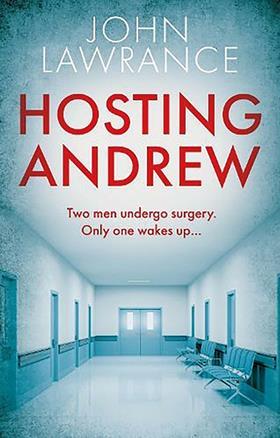
The idea for Hosting Andrew came to the author when he awoke from a minor operation a few years ago and experienced the change from deep, anaesthetics-induced sleep to waking to joy and relief to be alive and surrounded by family.
The Art and Craft of Judgment Writing: A Primer for Common Law Judges by Max Barrett (£95, Globe Law and Business)
I have heard people say that if both sides in a court case are unhappy with the decision then the judge has probably got it right. Coming second is not much fun for the losing party or their advisers. What the judge says, how it is said and the reasons are likely to be pored over by many people. This is marvellous book, full of wisdom and literary references. It is written by a leading Irish judge which brings with it an international flavour featuring judges and judgments from common law jurisdictions across the world, including American judges.
There are chapters on English judges, including Lord Atkin whose best decisions were probably when he was giving the minority decision, and Lord Denning who was a hero to many students in the 1970s and 1980s. Denning had a unique style which made some of his decisions read like short stories, such as ‘in 1926 life was peaceful in Buckinghamshire’ which makes me want to read Myers v Milton Keynes Corporation, 1974, and ‘it was a fine Chinese carpet worth £900 but it needed cleaning’ (Levison v Patent Steam Carpet Cleaning Co Ltd, 1978), which reads like the start of a good joke. Other judges make puns and jokes or give judgments in rhyme.
The Poisonous Solicitor: The True Story of a 1920s Murder Mystery by Stephen Bates (£18.99, Icon Books)
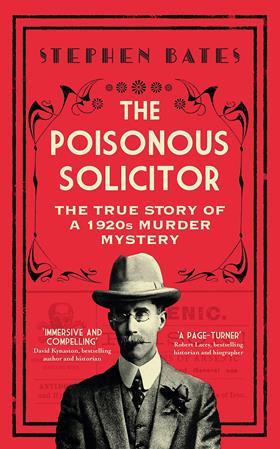
This is one of my top favourites because it tells us so much about legal practice between the wars. One hundred years ago, Herbert Armstrong, a country solicitor who practised in Hay-on-Wye, was tried, convicted and later hanged for the poisoning of his wife. He was the only solicitor to be executed for murder. A number of books have been written about the trial which caused a sensation at the time. This new book re-investigates the case and questions whether the conviction was safe. Whodunnits have always been popular, and there was a golden age of both real and fictional crime writing between the wars. The Armstrong case probably inspired, if that is the right word, a number of detective stories. Modern crime does not have the same fascination, perhaps because it is often more vicious. Poisoning is virtually unheard of now but in the 1920s and 1930s it seemed to be almost a national occupation. Arsenic was readily available as a weed killer.
There is almost always the hint of infidelity, greed and passion in these tales. What makes ordinary citizens go wrong, especially people like Armstrong who was the epitome of upstanding community. He was a solicitor, former army officer and member of the Territorials, churchwarden and freemason. This story also features professional rivalry from an upstart solicitor who opened up in practice opposite Armstrong.
The trial brought experts in forensic science who were national celebrities. Counsel and judges were also famous and the trial attracted crowds and media interest around the world. Whether Armstrong was wrongly convicted is debateable. Certainly the trial was weighted against him, possibly as a result of a previous trial going very wrong for the prosecution. The judge was named as the third member of the prosecution team.
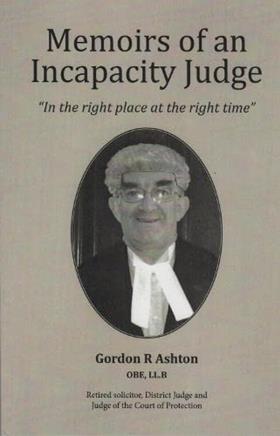
Memoirs of an Incapacity Judge by Gordon R Ashton (£18, Gordon R Ashton)
This is another top choice. Not many lawyers can claim to have almost invented an entirely new area of law; arguably, Gordon Ashton did just that. Perhaps he was just in the ‘right place at the right time’, as he so modestly puts it. He certainly did an enormous amount to promote interest in and study of the law relating to people with disabilities. The profession and public owe him a great debt.
The author has achieved much in his career as a district judge and the first judge to sit in the former Court of Protection and hear cases in the north of England. He was closely involved in the implementation of the Mental Capacity Act 2005, and was one of the first nominated judges of the present Court of Protection. He created the Practice Book for that court with a team of authors and this has been published every year since 2007. He has written and contributed to many books, including Mental Handicap and the Law (1992), Law Society’s Elderly Client Handbook (1994), Elderly People and the Law (1995, 2014), and Mental Capacity: the New Law (2006).
Gordon Ashton was awarded the OBE in 2010 for ‘services to the Administration of Justice and Disabled People’.
A Dictionary of Law: Oxford Quick Reference By Jonathan Law (Editor) (£13.99, Oxford University Press)
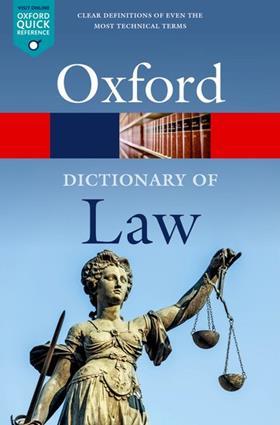
I have not bought a law dictionary for over 40 years. The last and only one I acquired in my first year of my law degree. I found it useful in my studies and very interesting as most of these words have a historical significance.
I was caught out by a person who telephoned me and accused me of champerty. I denied that I knew what he meant, which he did not believe, but I was in earnest. Champerty and maintenance both mean the crime or civil wrong committed where a third party pays another person to pursue a court case. Usually, the third person’s motive is a share of the compensation. My accuser was not a client but the estranged spouse of a client who could not believe that his wife would take him to court unless some evil lawyer (me) was at the back of it, purely for his own gain. The fact that the crimes and torts of champerty had been abolished in the 1960s did not bother my accuser.
Why would a lawyer, who is not a student, need a dictionary now? It is interesting to find out about areas of law we do not work in. This is a delightful romp through legal language.
Walden of Bermondsey By Peter Murphy (£12.99, No Exit Press)
I have added these stories, not because they came out this year, but because Peter Murphy passed away this year. He left behind a considerable body of work, including this very entertaining collection of six stories about a resident Crown court judge and his daily struggles with the ‘grey smoothies’ as he calls the faceless bureaucrats who control the purse strings and the daily grind of criminal trials. There is a real sense of what life is like for judges and the decisions they make. It is written with great style and grace.
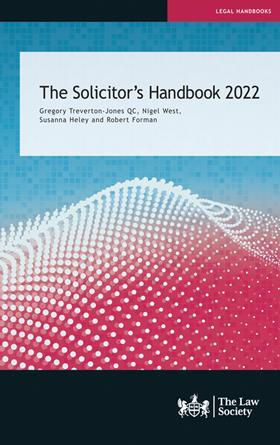
The Solicitor’s Handbook 2022 By Gregory Treverton-Jones, Nigel West, Susanna Heley, Robert Forman (£100, Law Society Publishing)
I have been reviewing each edition of this book since 2011. The last volume to come out was in 2019. I have always had to remind myself that I am reviewing the book not the subject matter. This edition, like its predecessors, is a clear, user-friendly guide to the subject of how, why and who regulates the profession.
The Guide to the Professional Conduct of Solicitors was first published in 1960 and went through eight editions until 1999. It was followed by the ‘vast’ Solicitors’ Code of Conduct 2007, outcomes focused regulation in 2011, and two sets of rules in 2019: one for individuals and one for firms. The aim of the changes was to produce rules which are simpler, shorter and easier to understand. Time will tell, I wrote two years ago, if less is more. Two years on, I am not convinced that this has come about. The pace of change over the last 10 years has been rapid and there is not much evidence that regulation is getting clearer or more flexible.
The contents of this book include a description of the principles and rules and the regulatory and disciplinary systems in practice. It contains about 300 pages of appendices covering everything we need to know. The section on sources of support for lawyers, however, is just over one page.
Whatever the future holds for regulation, I look forward to reviewing the next edition of this essential book.
How to Start a Law Firm: A Practical Guide to Offering Legal Services, 1st edition, By Darren Sylvester and Rachel Roche (£55, the Law Society)
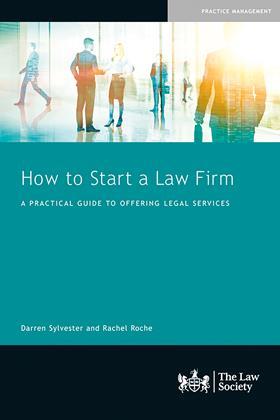
Some of us have done it – more years ago than I care to think – and probably all of us have thought about running our own business. What are the advantages and pitfalls and how do you do it? Many people want to be their own boss because they think they can do better than their current employer, or simply want to develop their own interests rather than be held back, propping up – perhaps as they see it – unprofitable areas.
Making the decision to run your own firm is not a simple step and this book is an excellent guide. It is full of common sense advice and stories of how others have avoided pitfalls. This book covers the initial business set-up, financing, the regulatory maze, insurance, and all the other 101 things a business person has to think about. There is very good advice about marketing, and ‘branding’ which is the current in-phrase.
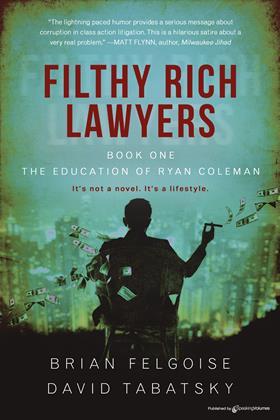
Filthy Rich Lawyers: The Education of Ryan Coleman, By Brian Felgoise and David Tabatsky (£15.99, Speaking Volumes Inc.)
This is an unusual novel about a young ambitious lawyer, with a shaky marriage, who wants to be successful and rich. The story is written by an American litigator and is set in the US, where the word ‘rich’ for trial lawyers can mean very wealthy indeed.
The tale starts in the state of Texas with the first of some memorable, dramatic scenes. The hero is going to a court hearing where everything is agreed and settled and the judge just needs to rubber stamp the settlement. What could wrong? The near disaster is beautifully described.
The hero is a somewhat wide-eyed lawyer, about to take his first steps in class actions which can mean getting millions for claimants and hefty fees for the lawyer. Along the way we meet various characters who are interesting in different ways. The book is inspired by Felgoise who has recovered billions of dollars for clients.
It is a satire and must be read as such. This is a unique and fascinating look at American class actions. I look forward to the next books in this series.
The Ambrosia Project: A Burton and Lamb Case: By Abi Silver (£9.99, Lightning Books)
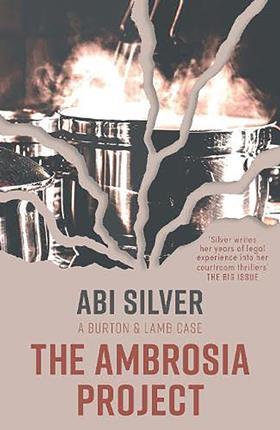
Abi Silver comes up consistently with topical themes for courtroom thrillers, including gaming, celebrity, self-driving cars and now food! A leading figure in the business world of food collapses and dies unexpectedly at a public event. Was the tragedy a heart attack, food poisoning, or the result of an allergy? What role did his scary PA have in it? Fortunately, the whole thing is captured on camera. His seafood allergy is blamed and the event caterer is charged with manslaughter.
This thriller contains a number of suspicious characters with different motives including a food blogger, a television cook, a farmer, a vegan a scientist interested in insects and someone who only wants us to eat meat.
It features solicitor and barrister duo Judith Burton and Constance Lamb who are retained by the defence. The story moves quickly to a court trial with a great judge who is wary of putting a foot wrong. The book has an authenticity lawyers will appreciate.
Criminal: How Our Prisons Are Failing By Angela Kirwin (£18.99, Trapeze)
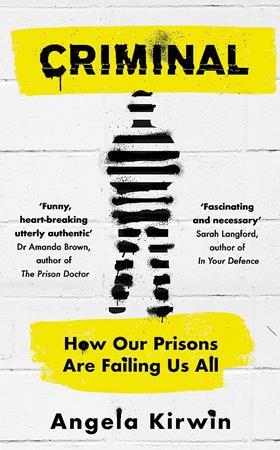
Former home secretary Douglas Hurd said prisons are ‘expensive places for making bad people worse’. Arthur Conan Doyle, the author and campaigner, wrote of a felon in one of his stories, ‘send him to jail now, and you make him a jail-bird for life’. The message that prisons do not work and are costly is not a new one and there are several books that deal with the subject well. This book stands out as one of the better ones. It makes a compelling case for better investment, training and sending fewer offenders to gaol. It makes the point that prisoners are not locked away for ever and therefore society has to so do something positive with them.
This readable and intelligent book compares policy and attitudes in this country with what has been tried and works abroad, especially in Norway which the author has some knowledge of. Norway like many other countries spends more on prisons, sends fewer offenders to prison and trains staff for far longer. We detain too many people including those who are mentally ill, immigrants, elderly or disabled.
David Pickup is a partner at Pickup & Scott Solicitors, Aylesbury
- Would you be interested in writing a book review for the Law Society Gazette? The Gazette receives books on a range of legal specialisms, as well as fiction, history and biography. If you are interested please write to Nicholas Goodman indicating your specialism
































No comments yet